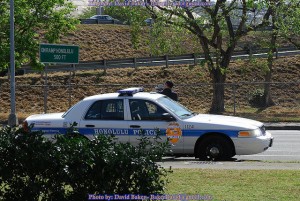 When it comes to common ways in which law enforcement interacts with private citizens, traffic stops would top the list. Among the top reasons for police officers stopping drivers is exceeding the legal speed limit. As it pertains to speeding, one of the most common concerns among drivers is the legality of what they consider to be speed traps. The question that arises from this dilemma is whether speed traps are legal or not?
When it comes to common ways in which law enforcement interacts with private citizens, traffic stops would top the list. Among the top reasons for police officers stopping drivers is exceeding the legal speed limit. As it pertains to speeding, one of the most common concerns among drivers is the legality of what they consider to be speed traps. The question that arises from this dilemma is whether speed traps are legal or not?
While there are a number of different arguments that have been made against the use of speed traps to enforce the speed limit, the most relevant element of discussion in this area is proper definition.
Narrowing and Defining the Term
When it comes to speed traps, there are multitudinous ways that the term has been defined, especially among private citizens who end up on the wrong end of a speeding ticket. So, the first matter of business is to clearly define what a speed trap is.
- The average motorist will define a speed trap as any mechanism in which law enforcement officers use stealthy tactics to conceal their presence in order to identify drivers who are violating the posted speed limit.
- The truth is that while this may be frustrating for drivers, it is perfectly legal, in most states, for officers in most states to hide while measuring the speed of drivers.
Most states have restrictions against certain questionable behavior by law enforcement, including the use of what is known as “marked road traps.”
- A marked road trap is designated part of the road or highway in which police officers measure the time it takes a car to travel from one marker on the road to another in order to determine their speed.
- California is among a number of states that prohibits this practice.
Two Things Drivers Should Know
While it is possible for a driver to defend themselves against a speeding ticket in traffic court, it is not always the most profitable option. First of all, there are certain things that a driver must be aware of prior to their day in court. There are two things in particular that will impact their ability to defend themselves.
The first thing that the driver must be aware of is the type of speed law they were ticketed under; presumed, basic or absolute.
- When it comes to states that use an absolute law, the violation criteria are very straight forward.
- If a driver exceeds the posted speed by any measure, they have violated the speed law and can be charged with speeding.
- When it comes to states that use a presumed law, things can become somewhat complex, as far as gaining a clear understanding of what constitutes speeding; however, the flexibility that is created by the ambiguity in the law provides the latitude for drivers to challenge the ticket in court.
- Basically, under presumed speed laws, like those used in Texas and California, a driver can exceed the speed limit on certain roads, as long as they are able to demonstrate that they were driving safely.
When it comes to the basic speed law, it can be even trickier to defend. This is because a driver can be ticketed even if they are traveling under the posted speed limit, as long as the officer determines that they were traveling at a speed that was unsafe under the current conditions.
The second thing that a driver must be aware of is the method the officer used to measure their speed, such as radar, pacing, aircraft, VASCAR laser.
There are so many different variables that are associated with speeding laws that it is nearly impossible for a police officer to have them all in mind when issuing a speeding ticket; subsequently, it is possible that they may issue a ticket in violation of a specific statute that exposes the state to a successful defense.
[Image:https://www.flickr.com/photos/davidbaker/457662646/]
[Image License: Creative Commons. See image above]
Scott Desind
Latest posts by Scott Desind (see all)
- How to Request the County Seat and Fight Your California Traffic Ticket - May 21, 2023
- Don’t Even Touch That Cell Phone - July 13, 2022
- Innocent Until Proven Guilty - March 2, 2020

